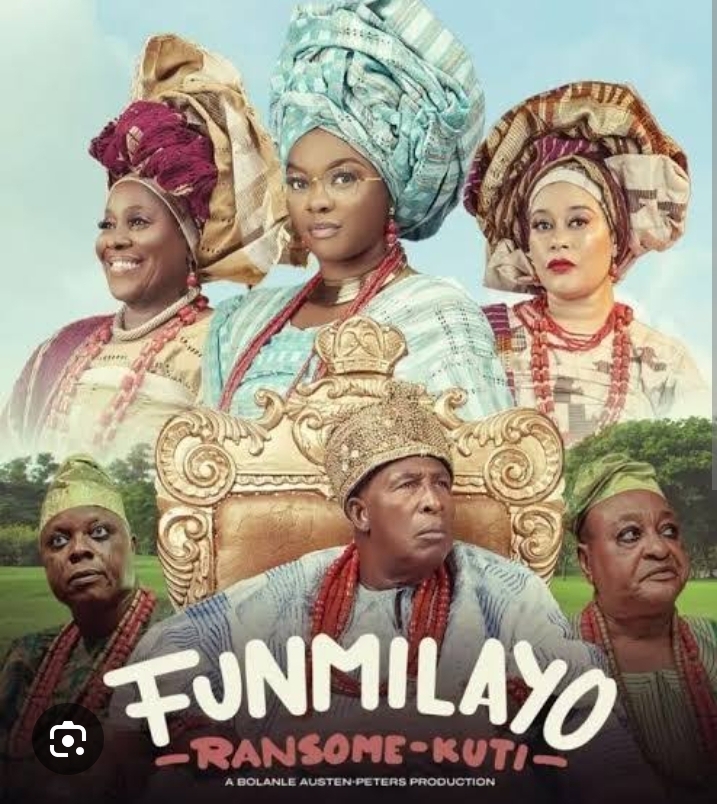by Ruth Ajani

Funmilayo Ransome-Kuti, directed by Bolanle Austen-Peters, is a masterpiece that brings the remarkable life of a late icon to the silver screen with brilliant storytelling, unique characters, and impeccable craftsmanship.
Funmilayo Ransome-Kuti’’s biopic doesn’t just focus on her being the mother of legendary Afrobeat singer Fela Kuti or the first Nigerian woman to drive a car. It reveals so much more about her life.
Tunde Babalola, the director of Funmilayo Ransome-Kuti, avoids this pitfall by focusing on one significant aspect of her life and weaving other minor details around it.
The film focuses on the lesser-known women’s revolt of 1947. As leader of the Abeokuta Women’s Union, Funmilayo Ransome-Kuti, along with Eniola Soyinka (Wole Soyinka’s mother), led the Ẹ̀gbá women to protest high taxes and gender marginalisation. Their protest led to the abdication of the Aláké of Ẹ̀gbá Land, ended taxation on women, and secured seats for women on the local council.
Funmilayo’s actions earned her the title “The Lioness of Lisabi.”Her heroics in the struggle for women’s rights are the focal point of the biopic, supplemented by other pivotal moments, like being the first female student of Abeokuta Grammar School and promoting education for women and children. This comprehensive approach ensures her inspiring character isn’t reduced to a single narrative.
The film introduces Funmilayo Ransome-Kuti at three stages in her life: As a little girl (portrayed by Iyimide Ayo-Olumoko), a young woman (portrayed by Kehinde Bankole), and an older woman (portrayed by Joke Silva).The story begins dramatically with the 1977 invasion of Fela Kuti’s home, the Kalakuta Republic, by Nigerian police.
They throw the elderly Funmilayo, played by Joke Silva, from a balcony, an injury that would eventually lead to her death a year later.The narrative then seamlessly intertwines her life events, showing her journey from childhood to adulthood.
A young girl named Francis Thomas, inspired by her father, Chief Daniel Olumeyuwa Thomas (Patrick Dibuah), the son of a returnee enslaved person from Sierra Leone with roots in Egba land, she developed resilience and determination. Funmilayo confronted the tax collectors, the Parakoyi, challenging their excessive taxes. This act earned her the praise of the market women.
However, the Alake and his tax collectors persisted in their oppressive practices. Funmilayo’s efforts to address the issue through formal channels were fruitless, leading her to form the Abeokuta Women’s Club, which later evolved into the Abeokuta Women’s Union. By uniting elite women with market women, they collectively fought against unjust taxation.
